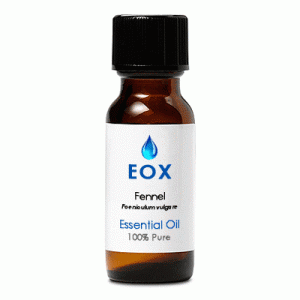|
Characteristics:
A colorless to pale yellow mobile liquid with a very sweet, anise-like, slightly earthy-peppery scent.
It blends well with geranium, lavender, rose, and sandalwood.
Principal Constituents:
These are naturally occuring in the essential oil.
- anethole
- limonene
- phellandrene
- pinene
- anisic acid
- anisic aldehyde
- camphene
General Actions:


 Open Symbols Key
Open Symbols Key
Aperitif, antispasmodic, carminative, depurative, diuretic, emmenagogue, expectorant, galactagogue, laxative,
orexigenic, stimulant (circulatory), splenic, stomachic, tonic, vermifuge.
Safety:

Non-irritant, relatively non-toxic, narcotic in large doses. Not to be used be epileptics or during pregnancy. Use in moderation.
Primary Therapy Agent:
Bruises, mouth and gum infections, accumulations of toxins, cellulitis, edema, water retention, obesity, halitosis/offensive breath, griping pains, nausea, vomiting, lack of nursing milk.
Secondary Therapy Agent:
Greasy or oily skin/scalp, wrinkles, mature skin, rheumatism, colic, constipation, sluggish digestion, amenorrhea, menopausal problems.
Important Note:
The information on Florapathics.com is
only provided for educational purposes, and further research should be done
on each essential oil to be assured of its proper usage for each individual.
Aromatherapy is not meant to be a replacement for care under a qualified
health professional, but should be considered a complimentary modality.
|








